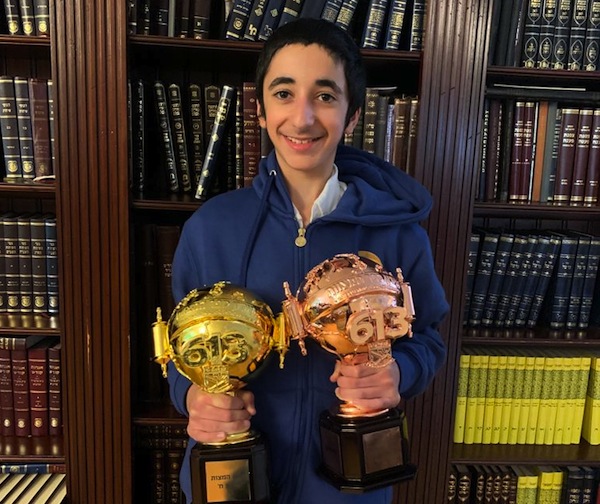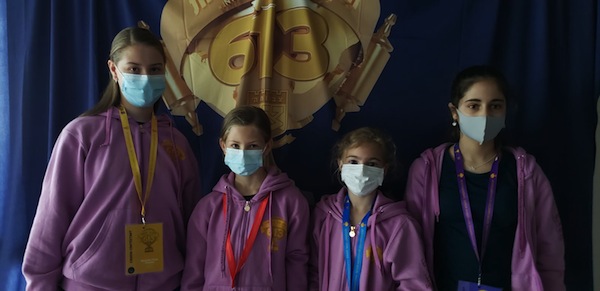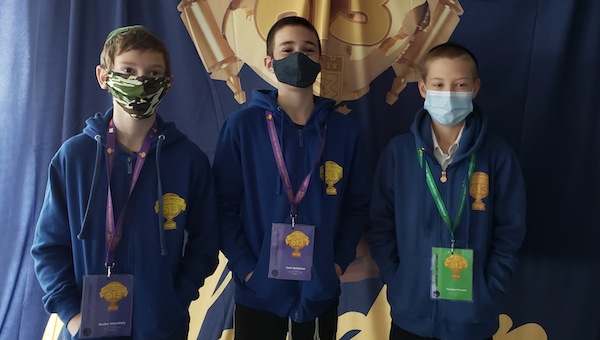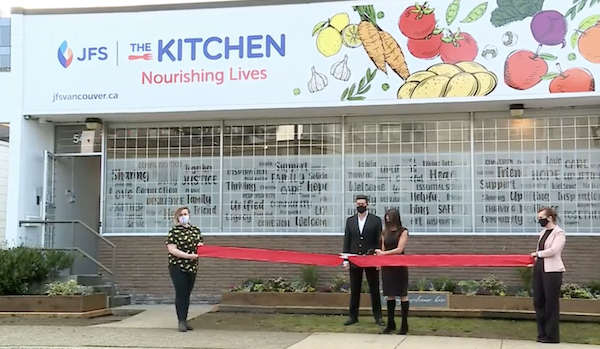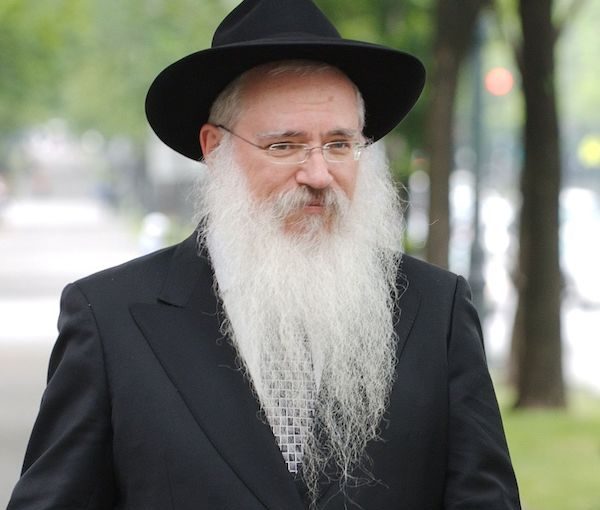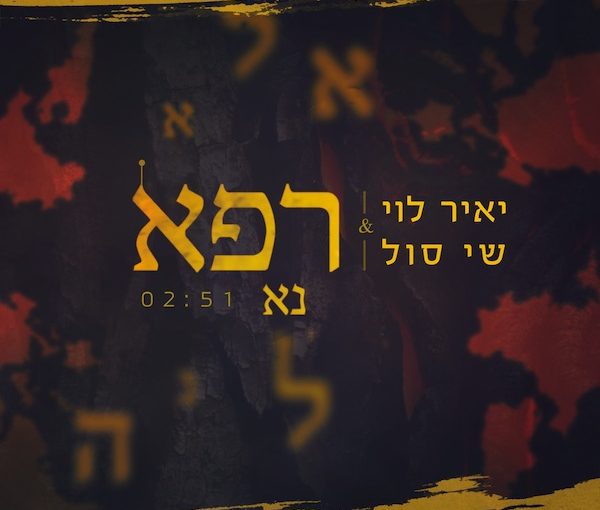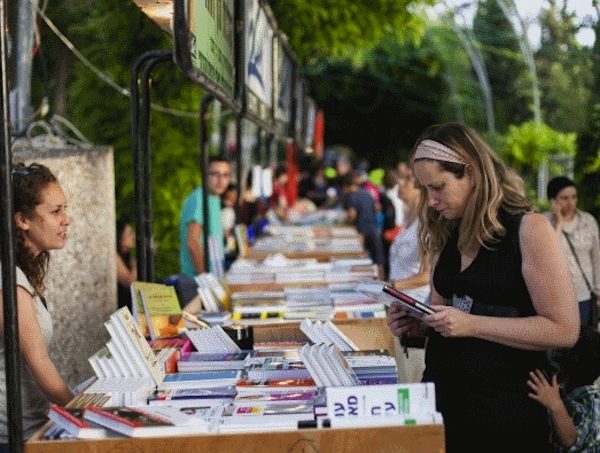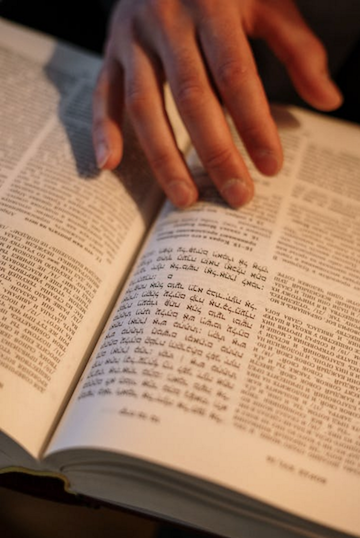We’re in the month of Heshvan on the Jewish calendar. Some people call it Mar-Heshvan or Marcheshvan. (Since this is transliteration, it can be spelled either “ch” or “h.”) It’s called mar, or bitter, because, aside from Shabbat, there are no Jewish holidays during this month.
Of course, as Canadians, we had Thanksgiving in there. However, after a long stretch of Jewish holidays, many Jewish people, myself included, quite like the idea of a month off from them. Finally, I have time to start another big project. A relatively quiet Jewish month leaves more time to do “regular” work, learning and making changes.
As a kid, I was very active in my Reform congregation. I learned to lead services and read Torah and Haftarah, and did it without hesitation after becoming a bat mitzvah. Unfortunately, though, at that time, we didn’t chant in my parents’ congregation, so I never learned how to do it. I married into a family with slightly more traditional practice among some of its members and, therefore, have been attending services with chanting now for more than 20 years.
Yet, learning to chant is a tricky business as an adult. On one occasion, I asked a rabbi if I might learn and he said of course, the congregation ran a special group class for adult b’not mitzvah. (Mostly it was women who never were able to participate in a bat mitzvah service as a child.) I said no, I’d been there and done that – complete with leading the service, a reception with custom-made omelettes, and a special dress. I just wanted to learn to chant. He had no space in his imagination for someone who just wanted to learn this skill without the lifecycle event.
I also learned that there are different kinds of trope. Chanting comes along with symbols in the text of the Torah, Haftarah, Eicha and Megillat Esther. The symbols were introduced by the rabbis as a way to mark and understand the text better. It’s like punctuation. However, as an oral tradition, chanting melodies differ according to where one lives and one’s background. There are actually many different styles of chanting trope, including smaller regional differences, as well.
The trope I’ve begun learning is an Ashkenazi one, which is perhaps appropriate to my family background. (I haven’t done a DNA test, though, so I’m going by family lore.) However, parts of my family are Western European and others have been in the United States for a long time. It’s even possible that I’m learning the “wrong” trope for my background. I’ve found that several Sephardi and Mizrahi chanting styles sound clearer and make more sense to me, perhaps because I’ve learned Modern Hebrew and I lived in Israel as a teenager. It’s actually not as simple as “Learn trope!” “Chant Torah!” although it seems this way if you’ve only lived in one specific Jewish ethnic community with unified customs and traditions.
The more you know, the more complicated things seem. The best metaphor I’ve come up with springs from an odd social media interaction I had. Someone I know only online described her harvest supper menu as including “Jewish-style brisket.” I jokingly responded, “WHAT?! There’s only one kind? What about the many varieties I’ve had over the years? Could it be that I’ve never eaten the only ‘official’ Jewish brisket recipe?”
I said maybe this was an Eastern European/Ashkenazi recipe, or her family recipe. After all, brisket is a relatively cheap cut of meat, cooked low and slow, which is perfect to make on Shabbat, when some families do not adjust oven temperatures or turn the oven on or off.
The person insisted that this was indeed the Jewish-style brisket her family made, mostly, and that, if you Google it, this exact recipe pops up. (Hint, lots of things pop up online that don’t hold up under scrutiny.) Eventually, I suggested that perhaps this was best called a family recipe or a specific geographic recipe, and wished her bon appétit.
Geography matters in cooking meat – for instance, in a Southern barbeque recipe. That is, brisket in Texas doesn’t taste like brisket made in eastern Carolina. Nothing could be more different! The same is true for Jewish trope or chanting. They don’t sound the same because, although Jews originated, long ago, in what is now called Israel, we’re now a diverse people, from all over the world. Just as Jews don’t all look the same, we all don’t eat the same foods on holidays, or sing the same melodies for Lecha Dodi, Adon Olam or myriad other prayers.
So, I begin, with baby steps, to learn one chanting/trope tradition while acknowledging there are many others out there. Like the many brisket recipes and holiday traditions out there, knowing about diversity and traveling deepens our appreciation for what we know and enjoy, and for learning more.
In the meanwhile, I joked with a non-Jewish friend I know in “real life” that, if there is really only one Jewish-style brisket recipe, we might be in trouble. “Oh no!” she replied. “I have to figure out ‘the’ Christian brisket recipe! How have I missed it after all this time?!” We snorted together with laughter. Next, I might call a Muslim friend to ask if there just one Muslim meatball – after all, the kibbe and kofte I’ve shared over many years might not be the official kind?
The best learning for Heshvan? There might not be a single “official” version of anything. That, in itself, is a lesson in diversity that might be worth learning like trope … over and over.
Joanne Seiff has written regularly for CBC Manitoba and various Jewish publications. She is the author of three books, including From the Outside In: Jewish Post Columns 2015-2016, a collection of essays available for digital download or as a paperback from Amazon. Check her out on Instagram @yrnspinner or at joanneseiff.blogspot.com.

